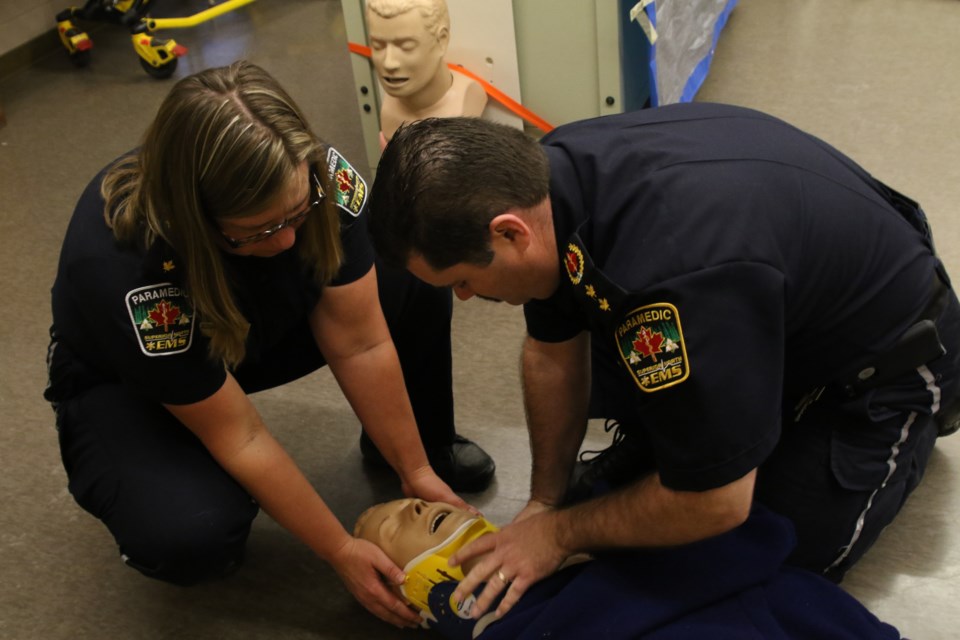THUNDER BAY -- Changes to Superior North EMS policy will eliminate unnecessary use of a spinal procedure local paramedics and patients both find to be a pain in the neck.
Council unanimously approved the local EMS department's request to participate in a C-spine study at its meeting on Monday.
The project will allow paramedics to transport patients who have suffered low-risk trauma to emergency departments without immobilizing them. It could result in as much as a 60 per cent reduction in spine board use.
EMS chief Wayne Gates said the old policy was proving to be overreach.
"It’s very black and white and essentially, if there’s any indication of any possible trauma to the spine, paramedics essentially have to fully immobilize the person, regardless of if there’s neck pain or no neck pain or whatever," Gates said.
"That results in a lot of people being immobilized that probably do not need to and we know that."
Superior North EMS deputy chief of professional standards Andrew Dillon said he believes it's about time the procedures were updated and he assures the changes will be safe. Those aged 65 or over who are more prone to osteoporosis will have more stringent criteria for the use of spine boards, for example.
“It has to be low-impact blunt trauma. All the penetrating traumas from stabbings and glass shards and whatever else it may be, they’re eliminated and get all the spinal immobilization as well," Dillon said.
"What this is designed to do is to put the spinal immobilization on the patients who truly need it and not to put it on the patients who just end up sitting on it for hours at a time and because they truly are low-acuity patients and they don’t need to have that done to them.
"It’s uncomfortable, it’ takes time and it’s time we can use in other ways and make our patients more comfortable."
The policy could save the city as much as $10,000 as it would save $1 million across Canada.
The changes are part of a partnership with the Ottawa Hospital Research Institute. Local paramedics have been working with the Ottawa institute since 1995. In 2008, the partnership embarked upon a five-year study that changed CPR procedure from 30 compressions followed by two breaths to continuous compressions.
Council also voted to give Gates the authority to sign off on future projects in the partnership without council approval, provided there are no financial implications.
